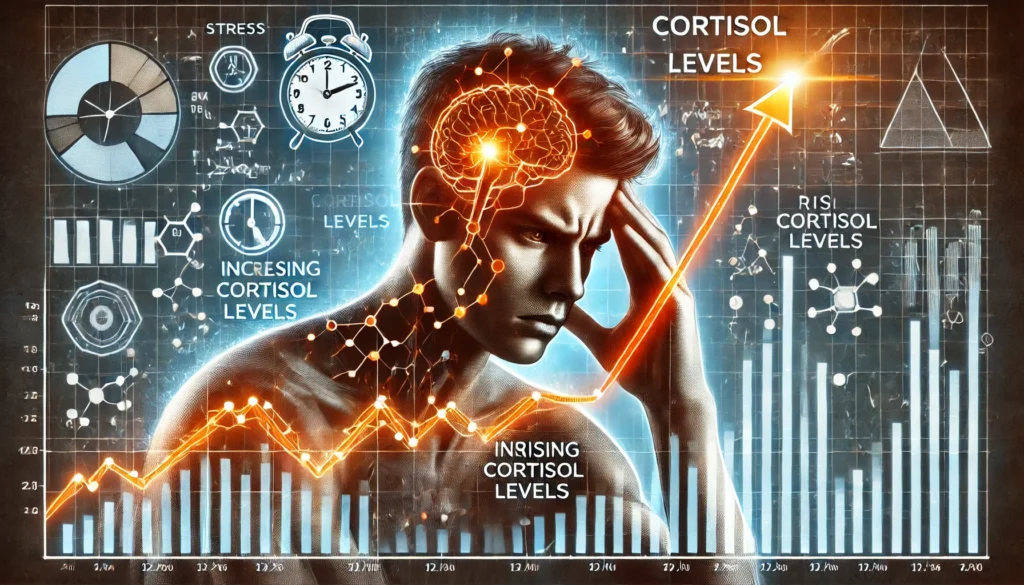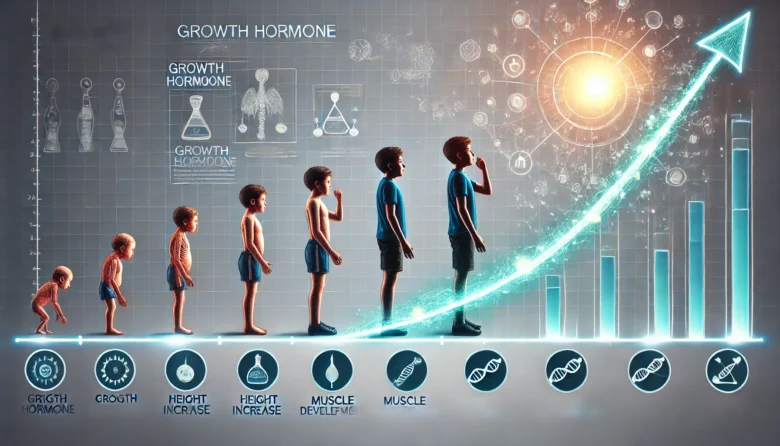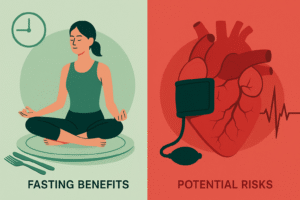Have you ever wondered how your body knows when to grow, when to hit puberty, or even how it regulates stress? These processes are all driven by powerful chemical messengers called hormones. In fact, hormones play a crucial role in nearly every stage of human development, from the moment of conception through adulthood. In this blog, we’ll explore the fascinating world of hormones, their role in human development, and how they affect our physical and emotional well-being.
What Are Hormones and How Do They Work?
Hormones are chemicals produced by glands in the endocrine system. These glands secrete hormones into the bloodstream, allowing them to reach various tissues and organs to convey essential signals. Think of hormones as the body’s text messages—quick, efficient, and designed to relay important information!
Endocrine System Overview
The endocrine system consists of several glands, including the thyroid, pituitary, adrenal, and reproductive glands. Each of these glands has a specific job, producing hormones that control everything from metabolism to reproductive health.
The pituitary gland, often called the “master gland,” is located in the brain and controls many other hormone glands. It releases growth hormone (GH), which is essential for development during childhood and adolescence.
The thyroid gland regulates metabolism through hormones like thyroxine (T4) and triiodothyronine (T3).
The adrenal glands produce cortisol, often referred to as the “stress hormone,” which helps manage your body’s response to stressful situations.
Hormones in Growth and Development
From infancy to adolescence, hormones are busy at work orchestrating growth and change. Growth hormone (GH), released by the pituitary gland, ensures that our bones and muscles develop properly. During puberty, the levels of certain hormones surge, leading to the physical changes associated with adolescence.
Puberty: A Hormonal Rollercoaster
Puberty is the time when hormones like estrogen and testosterone take centre stage. For girls, the ovaries release estrogen, which leads to breast development, menstruation, and other physical changes. In boys, the testes produce testosterone, resulting in muscle growth, voice deepening, and the development of facial hair. While these changes can feel overwhelming, they are a natural part of growing up, orchestrated by the body’s hormonal system.
The Emotional Side of Hormones
It’s not just physical changes that hormones control—these chemical messengers also have a huge impact on our emotional well-being. Ever heard of mood swings? That’s hormones at work! Serotonin, dopamine, and oxytocin are neurotransmitters and hormones responsible for feelings of happiness, bonding, and emotional regulation.

Stress and Cortisol
Cortisol, often referred to as the stress hormone, plays a crucial role in managing our response to stress. While it’s essential for survival (think of it as your body’s alarm system), chronic stress can lead to consistently high cortisol levels, which negatively impact both mental and physical health.
Hormonal Imbalances: When Things Go Wrong
While hormones generally keep everything running smoothly, sometimes the system gets out of sync, leading to hormonal imbalances. These imbalances can manifest as a wide range of symptoms and conditions.
Hypothyroidism and Hyperthyroidism
The thyroid gland controls metabolism, and when it malfunctions, it can result in conditions like hypothyroidism (underactive thyroid) or hyperthyroidism (overactive thyroid). Hypothyroidism can cause fatigue, weight gain, and depression, while hyperthyroidism may result in weight loss, anxiety, and increased heart rate.
Polycystic Ovary Syndrome (PCOS)
In women, hormonal imbalances like elevated levels of androgens (male hormones) can cause Polycystic Ovary Syndrome (PCOS). This condition leads to irregular menstrual cycles, infertility, and unwanted hair growth. It’s a prime example of how critical hormonal balance is for reproductive health.
Hormones and Aging
As we age, hormone levels naturally fluctuate and decline. Menopause in women is characterized by a substantial decrease in estrogen, which can cause symptoms such as hot flashes, mood fluctuations, and alterations in bone density. In men, testosterone levels gradually decline, which may affect energy levels, muscle mass, and mood.
Hormone Replacement Therapy (HRT)
For some people, Hormone Replacement Therapy (HRT) is a way to manage the symptoms of ageing. HRT provides supplemental estrogen for women during menopause or testosterone for men with low levels. Though hormone replacement therapy (HRT) can alleviate symptoms, it’s essential to discuss its potential risks and benefits with a healthcare professional.
Conclusion
Hormones are more than just invisible chemicals floating around in your body—they are the orchestrators of life. From managing stress to controlling growth, reproduction, and emotional well-being, hormones impact nearly every aspect of human development. By understanding their role, we gain insight into how our bodies function, as well as how to maintain better health through hormonal balance.
So the next time you feel a surge of emotion or wonder how your body knows exactly when to grow, remember—it’s all thanks to your hardworking hormones!
Author’s Note
As a science enthusiast and writer, I’ve always been fascinated by the intricate ways in which our bodies function. Hormones, while often misunderstood, are a crucial part of that puzzle, and I hope this blog provides a clear and engaging look into their role in human development.
G.C., Ecosociosphere contributor.
References and Further Reading
- What to know about hormonal imbalances – SME Guide. https://smeguide.net/what-to-know-about-hormonal-imbalances/
- Hormones, Function, Meaning, Classification, Examples. https://www.anahana.com/en/physical-health/hormones
- Lewis, M. E. (2022). Exploring adolescence as a key life history stage in bioarchaeology. https://doi.org/10.1002/ajpa.24615





Comments
I do agree with all the ideas you have introduced on your post They are very convincing and will definitely work Still the posts are very short for newbies May just you please prolong them a little from subsequent time Thank you for the post